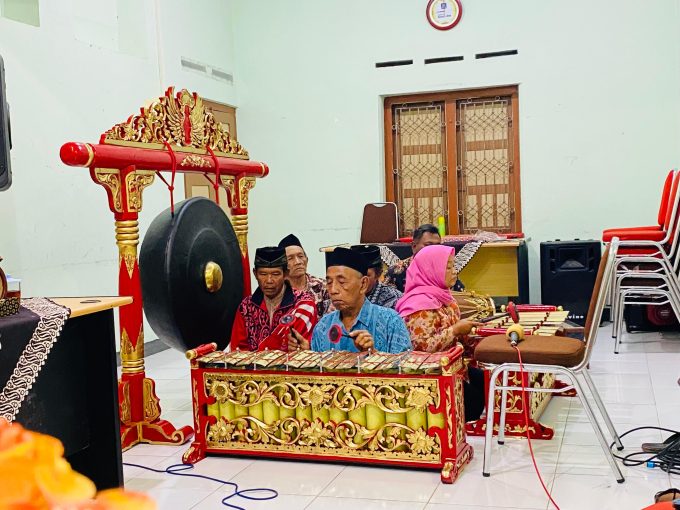
The Faculty of Philosophy at Universitas Gadjah Mada (UGM) has once again demonstrated its commitment to advancing sustainable education rooted in local wisdom through a community service program held in Pandak District, Bantul Regency, Yogyakarta Special Region. Entitled Developing Sustainable Education through Traditional Macapat Performing Arts, this initiative serves as a concrete step in bridging local values with contemporary challenges while reinforcing the role of art as a medium for education and character building.
The program was carried out by three lecturers from the Faculty of Philosophy: Prof. Dr. Lasiyo, M.A., M.M., Drs. Budisutrisna, M.Hum., and Dela Khoirul Ainia, S.Fil., M.Phil. It was born out of concern for the declining interest of younger generations in local culture, particularly traditional performing arts such as macapat. Each verse of macapat songs contains profound life philosophy, moral values, and worldviews rich in wisdom.
“The worldview of society, especially younger generations who pursue education but lack pride in their own cultural heritage, often leads them to regard foreign cultures as superior to their own. Such a condition will ultimately weaken the support of future generations for the sustainability of traditional performing arts,” explained Lasiyo.
Through this initiative, the Faculty of Philosophy seeks to reconnect young people with their cultural roots while introducing the importance of sustainable education in a local context. Over the four-month program, which began in May, the team conducted a series of activities including field observations, focus group discussions (FGDs), socialization of sustainable education, art performances, and the development of a learning module.
The primary partner in this program was the Puspitasari macapat group, which has been active since 2009 and has served as a cultural torchbearer in Pandak. This community consistently organizes regular training sessions and performances on various cultural stages, including community radio and local celebrations. Puspitasari even holds a MURI record for the longest macapat performance, lasting three days non-stop.
However, their dedication faces significant challenges: slow regeneration and a lack of interest from younger audiences. Recognizing this, the Faculty of Philosophy not only provided mentoring but also worked to establish a strategic foundation for sustainable cultural preservation.
“One concrete outcome is the development of a sustainable education module through traditional macapat performing arts, designed for use in various learning contexts, both formal and non-formal,” Lasiyo added.
This initiative aligns with Universitas Gadjah Mada’s commitment to supporting the Sustainable Development Goals (SDGs), particularly Goal 4 (Quality Education) and Goal 16 (Peace, Justice, and Strong Institutions). The outcomes of this program include a training module, academic publications, and the establishment of a formal partnership between the UGM Faculty of Philosophy and the Puspitasari community group. This collaboration provides a vital foundation for expanding broader and more sustainable cultural education programs in the future.
